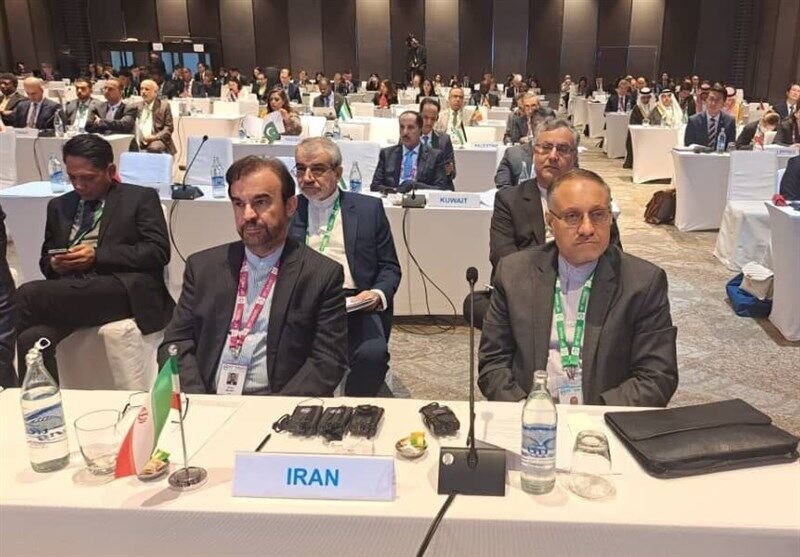ICJ rules show Israel responsible for Palestinian apartheid: official

TEHRAN- The Iranian deputy head of Legal and International Affairs for the foreign ministry has asserted that the International Court of Justice (ICJ) has identified the Zionist regime as accountable for acts of discrimination and apartheid against the Palestinian people.
Reza Najafi delivered these comments on Monday during the 62nd annual session of the Asian–African Legal Consultative Organization (AALCO) held in Bangkok, Thailand.
He underscored the importance of enhancing multilateralism in international relations. He pointed out the pivotal role that Asian and African nations play in fostering initiatives and activities rooted in multilateral cooperation.
Furthermore, Najafi addressed the alarming issue of terrorism, stressing the critical need for the rule of law, effective international collaboration, and the strengthening of multilateralism to enable the global community to effectively combat this threat.
In addition, Najafi highlighted that despite numerous judgments from the International Court of Justice and widespread calls from the international community to cease the genocide and atrocities occurring in the Gaza Strip, the Israeli regime continues to kill children and civilians with increasing audacity and cruelty.
He referred to the advisory opinion of the International Court of Justice regarding the ongoing occupation of Palestine, emphasizing that the ICJ not only views the persistent occupation and crimes against the Palestinian people as breaches of international law but also holds the Zionist regime accountable for discrimination and apartheid against Palestinians.
The Asian-African Legal Consultative Organization (AALCO) is an intergovernmental entity founded in 1956. It was created as an advisory body for member nations regarding international law, stemming from the Bandung Conference that took place in Indonesia in 1955.
Over the years, AALCO has expanded its membership and enhanced its international standing, adopting its current name in 2001. Presently, AALCO serves as a platform for collaboration among its 48 member states from Asia and Africa on legal issues, and it maintains observer status at the United Nations General Assembly.
The International Court of Justice (ICJ) has addressed multiple cases concerning Israel and the Palestinian territories, focusing on matters such as the separation wall, settlement activities, and accusations of war crimes.
A significant case is the 2004 advisory opinion regarding the “Legal consequences of the construction of a wall in the Occupied Palestinian Territory.” In this advisory opinion, which is not legally binding, the ICJ determined that the construction of the wall contravened international law, urging Israel to halt its construction, dismantle the wall, and offer reparations to the Palestinians impacted by it.
More recently, the ICJ has expressed its intention to investigate claims of war crimes by the Israeli regime during the 2023 Gaza conflict. Nevertheless, Israel has rejected the ICJ's jurisdiction and has opposed these investigations.
The rulings of the ICJ can serve as significant references for international law and can shape public perception.
The International Court of Justice (ICJ) serves as the main judicial body of the United Nations, located in The Hague, Netherlands.
Comprising 15 judges who are elected for nine-year terms by the UN General Assembly and Security Council, the ICJ's primary role is to uphold the rule of law and facilitate the peaceful resolution of international conflicts.
Leave a Comment